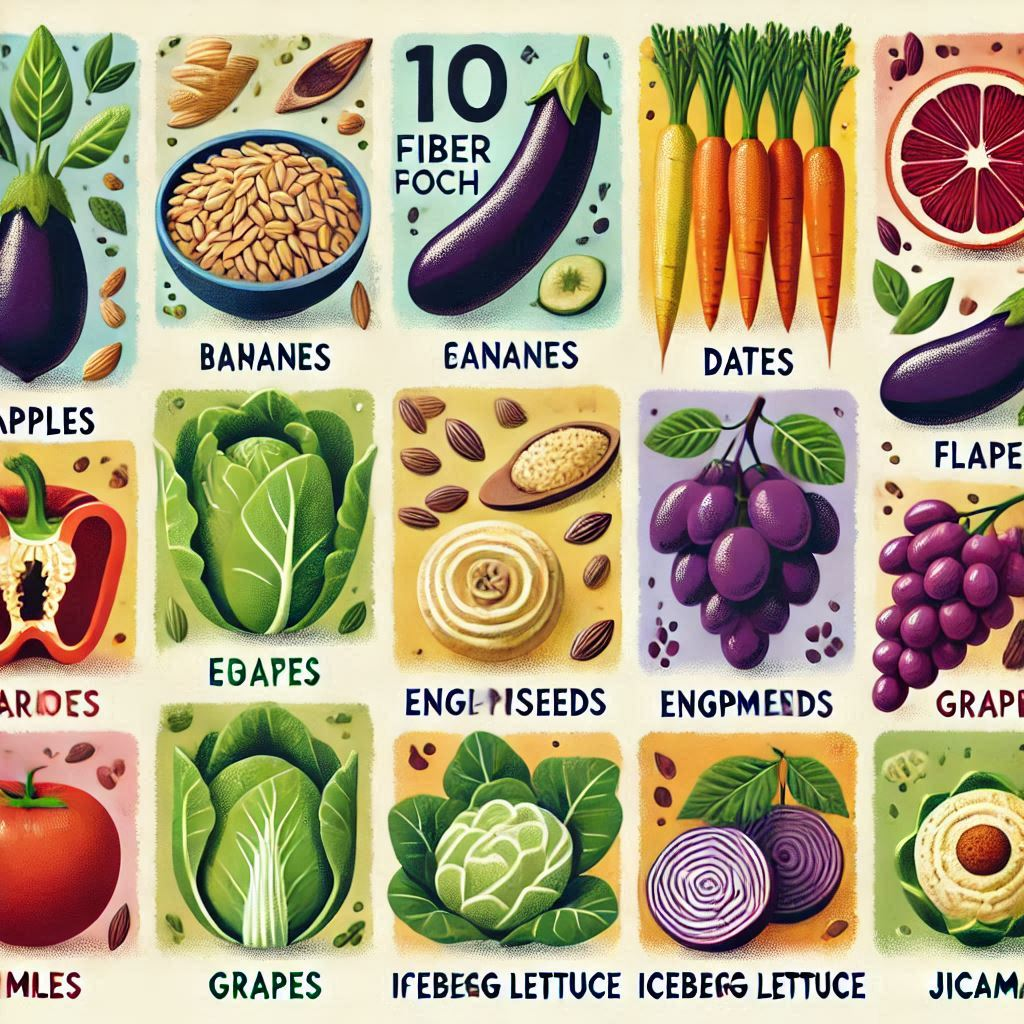
“Top 10 Fiber – Rich Foods A to Z for Health”
Top 10 Fiber-Rich Foods A to Z for Optimal Health
Discover essential fiber-rich foods to boost your health and digestion. Explore our A to Z guide for a balanced diet today.
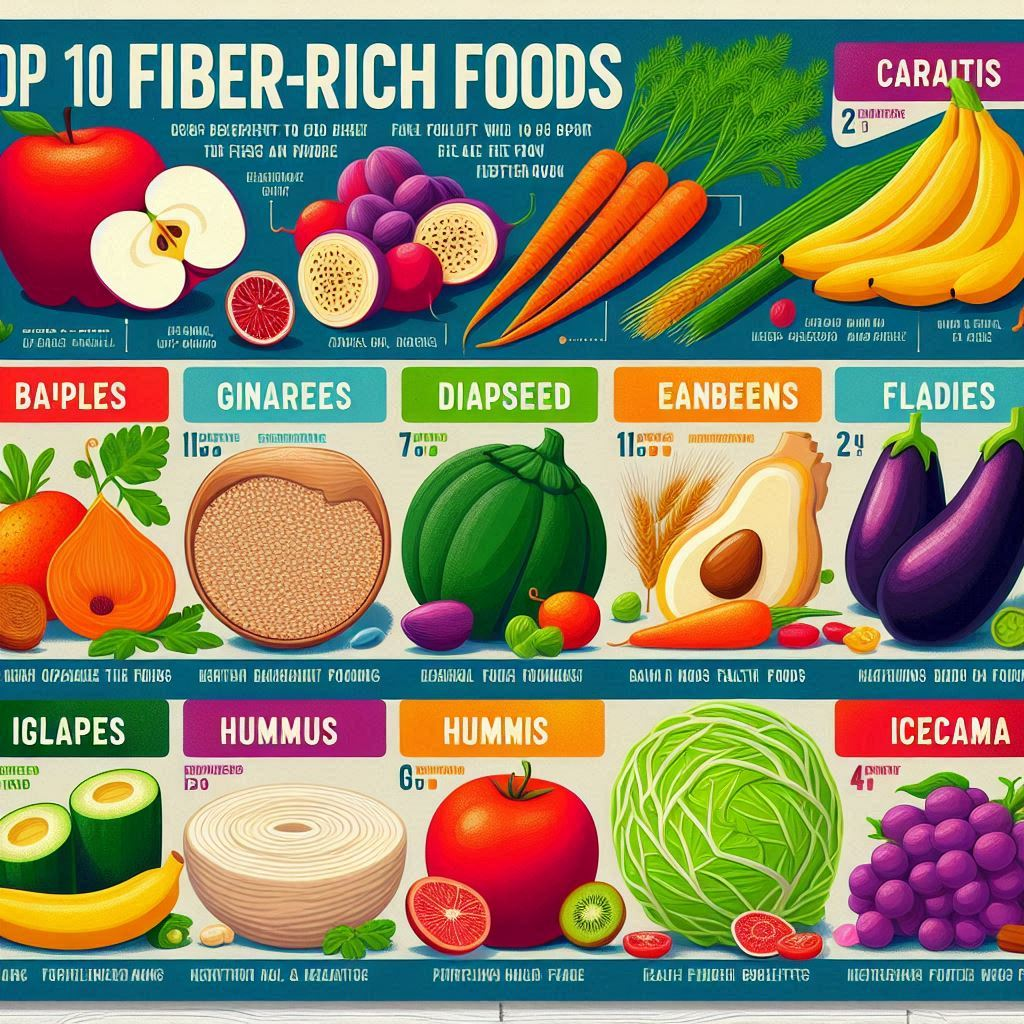
Explore our comprehensive A to Z guide featuring the top 10 fiber-rich foods that are essential for optimal health and digestion. Boost your overall well-being by incorporating these nutrient-packed options into your balanced diet today.
Introduction
Importance of Fiber in the Diet
Fiber is an essential nutrient that plays a crucial role in maintaining digestive health, regulating blood sugar levels, and supporting overall well-being. A diet rich in fiber can help prevent constipation, reduce the risk of chronic diseases, and promote a healthy gut microbiome.
Overview of Fiber-Rich Foods and Their Benefits
Fiber-rich foods are typically plant-based and include fruits, vegetables, legumes, and whole grains. These foods provide both soluble and insoluble fiber, which work together to support digestive health, lower cholesterol levels, and improve satiety. Incorporating a variety of fiber-rich foods into your diet can help you achieve optimal health.
Brief Mention of the Top 10 Fiber-Rich Foods from A to Z
In this article, we will explore the top 10 fiber-rich foods from A to Z, including apples, broccoli, carrots, dates, eggplant, figs, green beans, kale, lentils, and oats. These foods are not only rich in fiber but also packed with essential nutrients that support overall health.
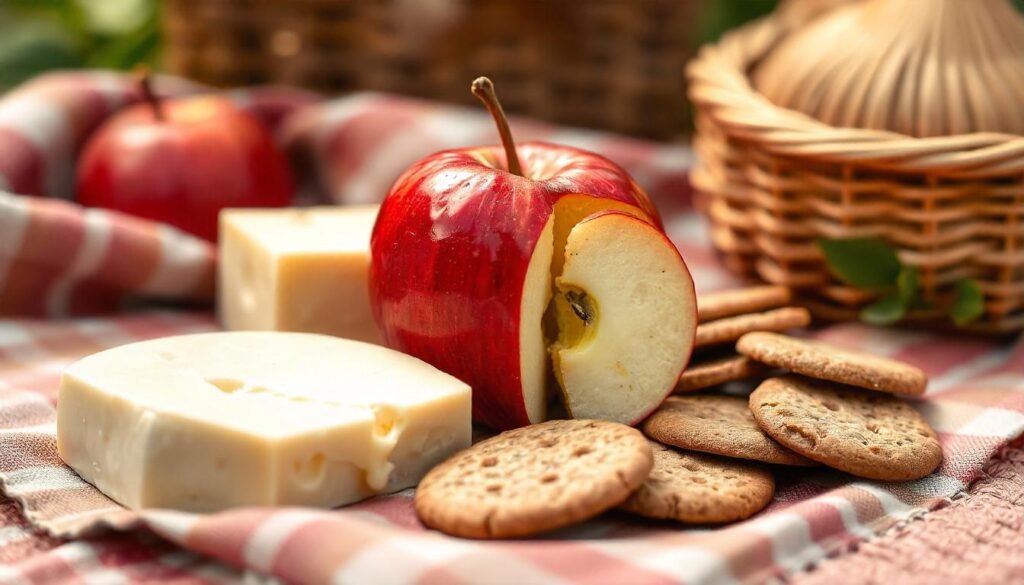
Food 1: Apples
Nutritional Benefits of Apples
Apples are a good source of dietary fiber, particularly soluble fiber known as pectin. They also provide vitamins C and A, potassium, and antioxidants, which support overall health and well-being.
How Apples Contribute to Digestive Health
The soluble fiber in apples helps regulate bowel movements and prevent constipation by adding bulk to the stool. Additionally, the antioxidants in apples can help reduce inflammation in the digestive tract, promoting a healthy gut.
Tips for Incorporating Apples into Your Diet
- Enjoy a whole apple as a snack.
- Add apple slices to salads, oatmeal, or yogurt.
- Use apples in baking recipes, such as apple muffins or apple crisp.
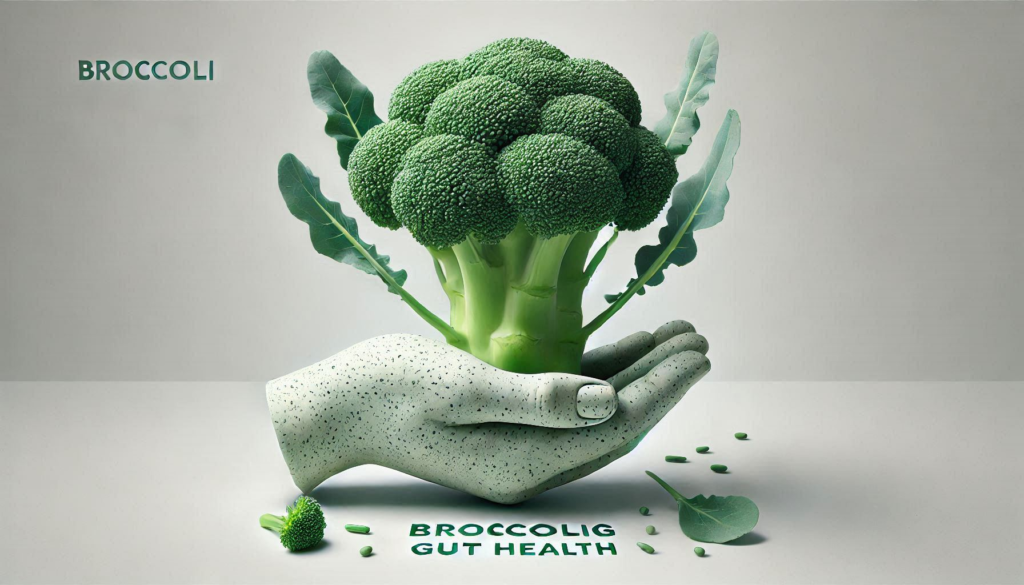
Food 2: Broccoli
Nutritional Benefits of Broccoli
Broccoli is a cruciferous vegetable that is rich in vitamins C and K, fiber, and antioxidants. It supports overall health and provides essential nutrients that can help protect the stomach lining.
How Broccoli Supports Gut Health
Broccoli contains both soluble and insoluble fiber, which help regulate bowel movements and support a healthy gut microbiome. The antioxidants in broccoli also help reduce inflammation in the digestive tract.
Tips for Incorporating Broccoli into Your Diet
- Steam or roast broccoli as a side dish.
- Add broccoli florets to salads, stir-fries, and pasta dishes.
- Blend broccoli into soups for a nutrient-rich meal.
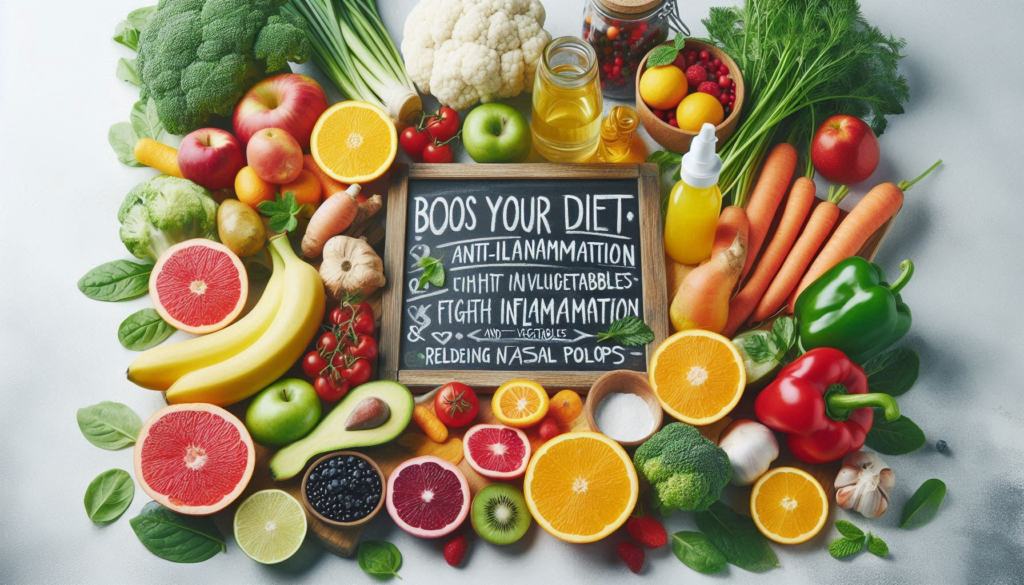
Food 3: Carrots
Nutritional Benefits of Carrots
Carrots are rich in vitamins and minerals, including vitamin A, vitamin K, potassium, and fiber. They are low in calories and provide a healthy snack option that can help keep you full and satisfied.
How Carrots Aid in Digestion
Carrots provide both soluble and insoluble fiber, which help regulate bowel movements and support a healthy digestive system. The fiber in carrots can also help reduce inflammation in the digestive tract.
Tips for Incorporating Carrots into Your Diet
- Snack on raw carrot sticks throughout the day.
- Add shredded carrots to salads, sandwiches, and wraps.
- Include cooked carrots in soups, stews, and stir-fries.
Food 4: Dates
Nutritional Benefits of Dates
Dates are a good source of dietary fiber, vitamins, and minerals, including potassium, magnesium, and vitamin B6. They provide a natural source of energy and are rich in antioxidants.
How Dates Help with Bowel Regularity
The high fiber content in dates helps regulate bowel movements and prevent constipation. Dates also provide natural sugars that can help boost energy levels and support overall health.
Tips for Incorporating Dates into Your Diet
- Enjoy dates as a natural sweet snack.
- Add chopped dates to oatmeal, yogurt, or smoothies.
- Use dates as a natural sweetener in baking recipes.
Food 5: Eggplant
Nutritional Benefits of Eggplant
Eggplant is a low-calorie vegetable that is rich in fiber, vitamins, and minerals, including vitamins C and K, potassium, and antioxidants. It supports overall health and provides essential nutrients that can help protect the stomach lining.
How Eggplant Supports Digestive Health
Eggplant contains both soluble and insoluble fiber, which help regulate bowel movements and support a healthy gut microbiome. The antioxidants in eggplant also help reduce inflammation in the digestive tract.
Tips for Incorporating Eggplant into Your Diet
- Roast or grill eggplant as a side dish.
- Add eggplant to stir-fries, pasta dishes, and casseroles.
- Use eggplant as a base for dips, such as baba ganoush.
Food 6: Figs
Nutritional Benefits of Figs
Figs are a good source of dietary fiber, vitamins, and minerals, including potassium, magnesium, and calcium. They provide a natural source of energy and are rich in antioxidants.
How Figs Promote Healthy Digestion
The high fiber content in figs helps regulate bowel movements and prevent constipation. Figs also provide natural sugars that can help boost energy levels and support overall health.
Tips for Incorporating Figs into Your Diet
- Enjoy fresh or dried figs as a snack.
- Add chopped figs to salads, oatmeal, or yogurt.
- Use figs in baking recipes, such as fig bars or fig bread.
Food 7: Green Beans
Nutritional Benefits of Green Beans
Green beans are a low-calorie vegetable that is rich in vitamins A, C, and K, as well as fiber and antioxidants. They support overall health and provide essential nutrients that can help protect the digestive system.
How Green Beans Aid in Digestion
Green beans contain both soluble and insoluble fiber, which help regulate bowel movements and support a healthy gut microbiome. The fiber in green beans can also help reduce inflammation in the digestive tract.
Tips for Incorporating Green Beans into Your Diet
- Steam or sauté green beans as a side dish.
- Add green beans to salads, stir-fries, and casseroles.
- Use green beans in soups and stews for added nutrition.
Food 8: Kale
Nutritional Benefits of Kale
Kale is a nutrient-dense leafy green vegetable that is rich in vitamins A, C, and K, as well as calcium, iron, and fiber. It supports overall health and provides essential nutrients that can help reduce inflammation.
How Kale Supports Gut Health
Kale contains both soluble and insoluble fiber, which help regulate bowel movements and support a healthy gut microbiome. The antioxidants in kale also help reduce inflammation in the digestive tract.
Tips for Incorporating Kale into Your Diet
- Add fresh kale to salads, smoothies, and wraps.
- Include cooked kale in soups, stews, and pasta dishes.
- Make kale chips as a healthy snack.
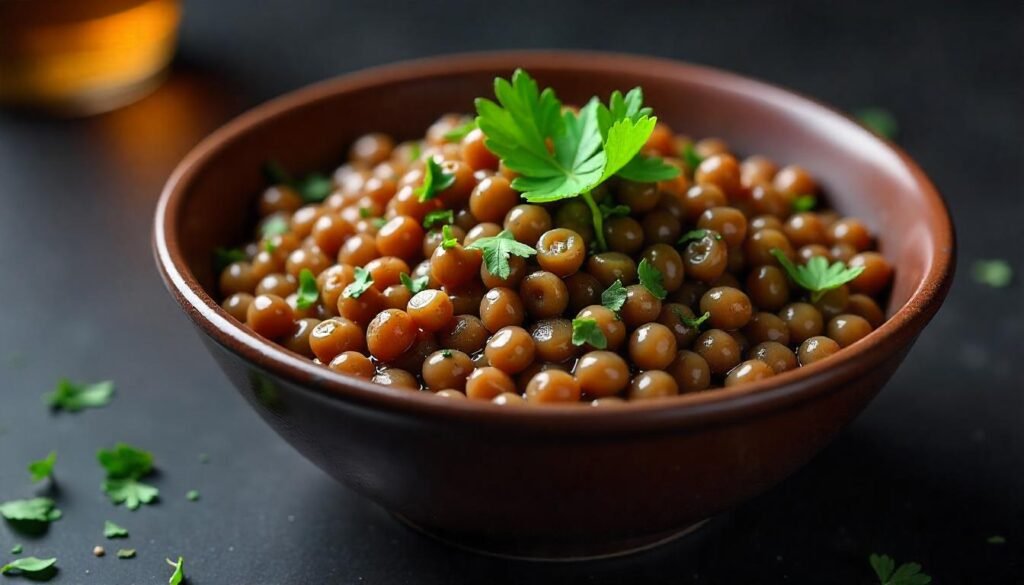
Food 9: Lentils
Nutritional Benefits of Lentils
Lentils are a good source of protein, fiber, and essential nutrients, including iron, folate, and magnesium. They support overall health and provide a plant-based protein option for vegetarians and vegans.
How Lentils Contribute to Digestive Health
Lentils contain both soluble and insoluble fiber, which help regulate bowel movements and support a healthy gut microbiome. The fiber in lentils can also help reduce inflammation in the digestive tract.
Tips for Incorporating Lentils into Your Diet
- Add cooked lentils to salads, soups, and stews.
- Use lentils as a base for vegetarian burgers and meatballs.
- Make lentil curry or dal for a nutritious and flavorful meal.
Food 10: Oats
Nutritional Benefits of Oats
Oats are a whole grain that is rich in fiber, vitamins, and minerals. They contain beta-glucan, a type of soluble fiber that supports digestive health and helps regulate blood sugar levels. Oats are also a good source of antioxidants, which can help reduce inflammation.
How Oats Aid in Digestion
Oats can help soothe the stomach lining by providing a gentle and easily digestible food option. The soluble fiber in oats forms a gel-like substance in the stomach, which can help protect the stomach lining and reduce irritation.
Tips for Incorporating Oats into Your Diet
- Enjoy a bowl of oatmeal for breakfast, topped with fruits and nuts.
- Add oats to smoothies for a nutrient boost.
- Use oats in baking recipes, such as muffins and cookies.
Conclusion
Recap of the Top 10 Fiber-Rich Foods
- Apples
- Broccoli
- Carrots
- Dates
- Eggplant
- Figs
- Green Beans
- Kale
- Lentils
- Oats
Encouragement to Include These Foods in Your Diet
Including these fiber-rich foods in your diet can help support digestive health and promote overall well-being. By choosing a variety of nutrient-dense foods, you can ensure that you are getting the essential nutrients your body needs to function optimally.
Final Thoughts on the Importance of Fiber for Optimal Health
Fiber is an essential nutrient that plays a crucial role in maintaining digestive health, regulating blood sugar levels, and supporting overall well-being. By incorporating a variety of fiber-rich foods into your diet, you can improve your digestive health, reduce the risk of chronic diseases, and promote a healthy gut microbiome. Embrace the power of fiber and take the first step towards optimal health.
FAQs
- What are the best fiber-rich foods for digestive health?
- Answer: The best fiber-rich foods for digestive health include apples, broccoli, carrots, dates, eggplant, figs, green beans, kale, lentils, and oats.
- How does fiber benefit the digestive system?
- Answer: Fiber helps regulate bowel movements, prevent constipation, and promote a healthy gut microbiome. It also aids in the absorption of nutrients and supports overall digestive health.
- Can a high-fiber diet help with weight loss?
- Answer: Yes, a high-fiber diet can help with weight loss by promoting feelings of fullness, reducing overall calorie intake, and supporting healthy digestion.
- How much fiber should I consume daily?
- Answer: The recommended daily intake of fiber is 25 grams for women and 38 grams for men. However, individual needs may vary based on age, gender, and activity level.
- Are there any side effects of consuming too much fiber?
- Answer: Consuming too much fiber can lead to bloating, gas, and abdominal discomfort. It is important to increase fiber intake gradually and drink plenty of water to avoid these side effects.
- Can fiber-rich foods help lower cholesterol levels?
- Answer: Yes, soluble fiber found in foods like oats, apples, and lentils can help lower cholesterol levels by binding to cholesterol in the digestive system and removing it from the body.
- What are some easy ways to add more fiber to my diet?
- Answer: Some easy ways to add more fiber to your diet include eating more fruits and vegetables, choosing whole grains over refined grains, and incorporating legumes and nuts into your meals.
- Are there any fiber supplements I can take?
- Answer: Yes, there are fiber supplements available, such as psyllium husk, methylcellulose, and inulin. However, it is best to get fiber from whole foods whenever possible.
- Can fiber help regulate blood sugar levels?
- Answer: Yes, fiber can help regulate blood sugar levels by slowing down the absorption of sugar in the bloodstream, which can be beneficial for individuals with diabetes or insulin resistance.
- What are the differences between soluble and insoluble fiber?
- Answer: Soluble fiber dissolves in water and forms a gel-like substance that helps lower cholesterol and regulate blood sugar levels. Insoluble fiber does not dissolve in water and adds bulk to the stool, helping to prevent constipation and promote regular bowel movements.

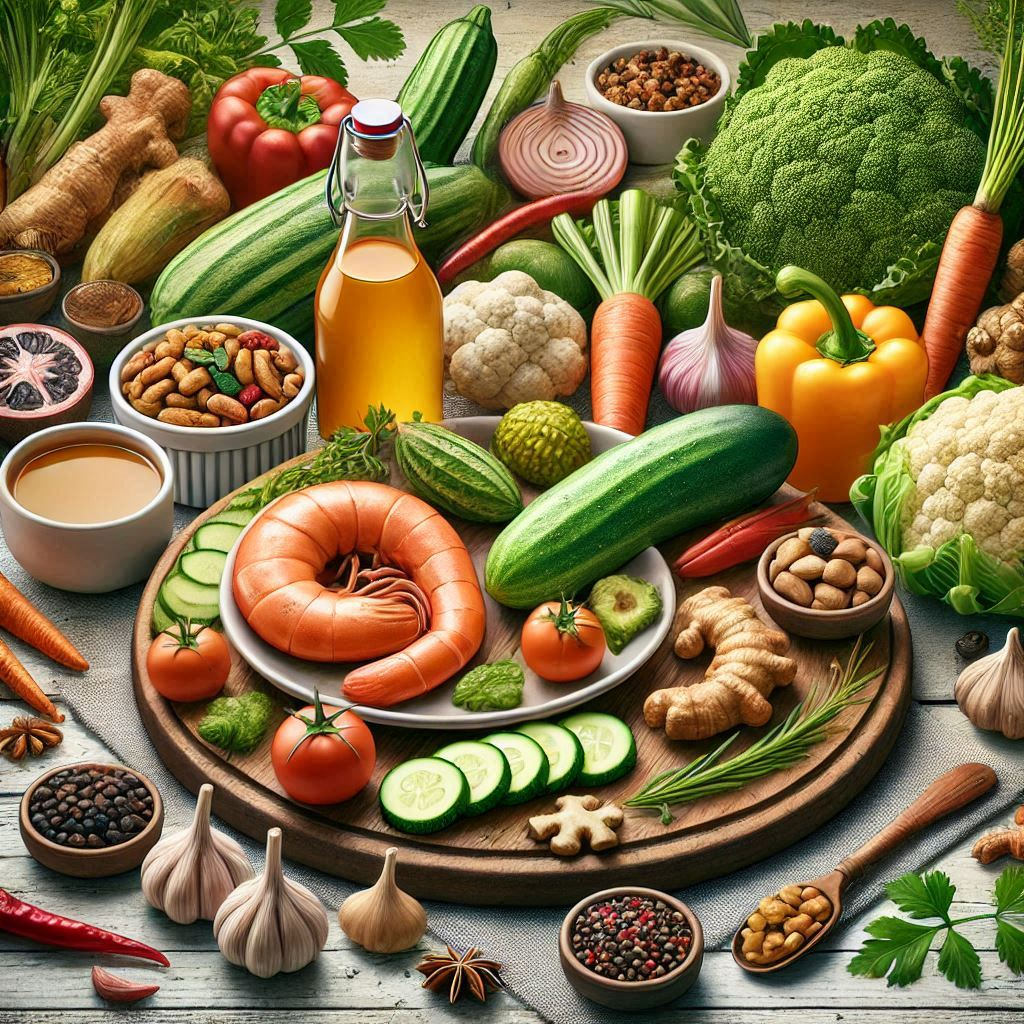



2 Comments
Pingback:
Pingback: